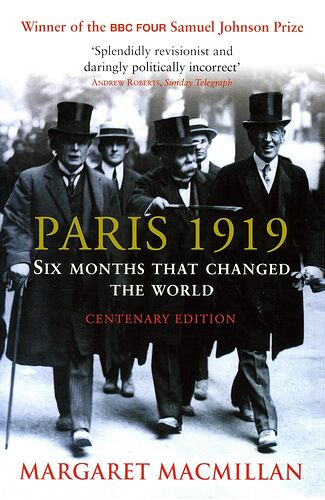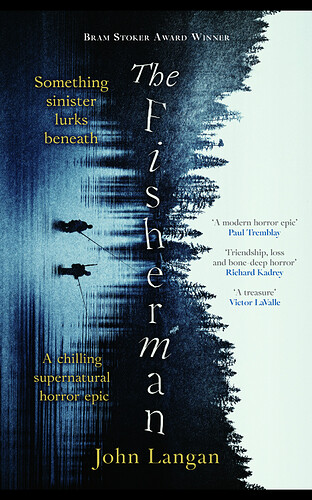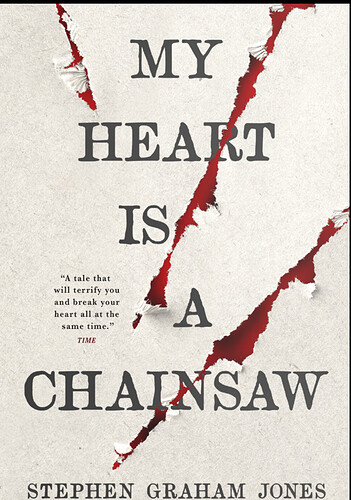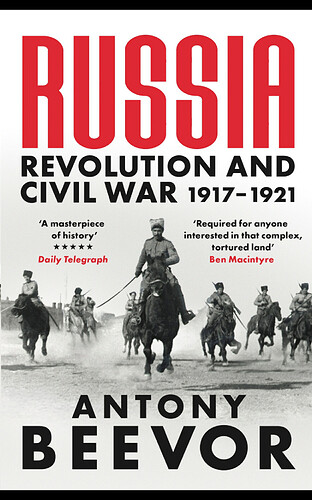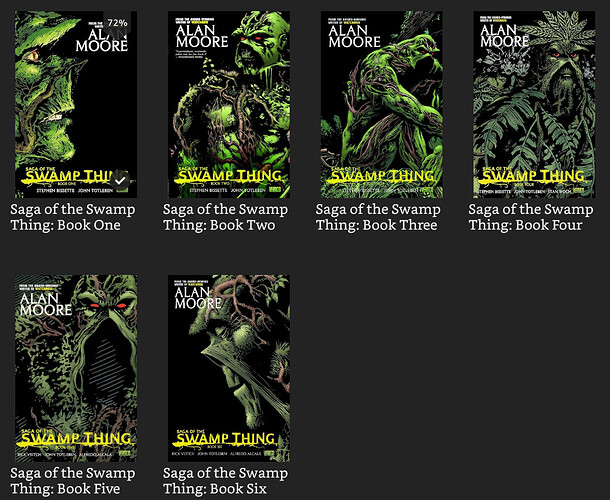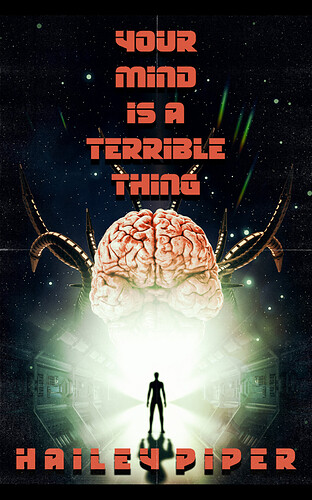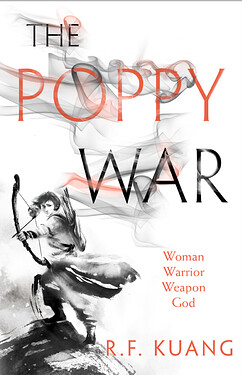I read Foundation, or rather re-read it again after 40 years, because of the tv series. It’s not very good, is it? If you took out the spaceship references, it would absolutely be 1960s America with serious men (only men) smoking cigars in wood-panelled rooms. No sense of the passage of time despite the episodic structure, or the size of space. The cutting edge tech of the distant future is atomic power. The post-imperial anarchy is basically a caricature of European aristocracy. The book’s redeeming benefit is that it’s short.
MacMillan’s book (formerly titled ‘Peacemakers’) is easily one of the best about Versailles, and she has the two best books that, while they don’t really cover WWI itself, bookend the conflict, and should be required reading to understand WWI.
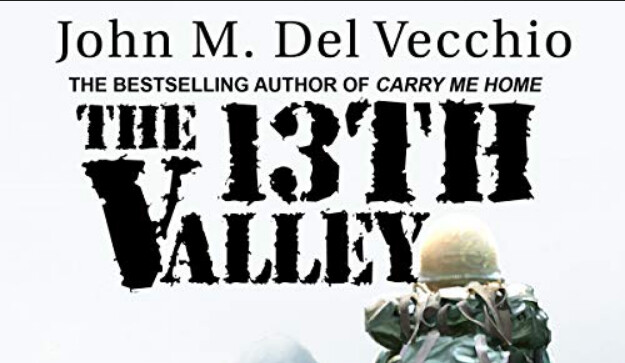
Another well-written memoir-as-fiction covering the Vietnam War, which seems to be a very popular way to approach the conflict, especially for those with a more positive view.
Adding The 13th Valley to my list. Rereading Matterhorn right now!
Matterhorn is a fucking classic.
I’ve been thinking about this since I read your post about Foundation yesterday, and I have several things to say, but the first one is simply to agree with you, that the writing and the general execution of the concept are disappointingly dated at this point. Like you, I think it’s been coming up on maybe 35 or 40 years since I’ve read it, and I don’t think I could go back and reread the trilogy again now (though it’s on my shelves and has been for decades). That said:
–It was written shortly after WW2 and during the cold war, and so some of the “men smoking cigars in wood paneled rooms” was gripping then in a way that it will never be again. There was a sense that global futures were being decided in that manner back then, and it was drama. We can see a little of this in the early James Bond movies, as one example, and you can tell that it was an edgy cultural touchstone.
–This was Asimov doing a take on the Rise and Fall of the Roman Empire, via scfi, and in what became an epic form (I think the books were originally short stories that he expanded on? I never read them that way, but I have some vague memory of that). It’s fair to say it was ambitious–in fact, it was too ambitious because he set himself up with a scope of so many years that the trilogy doesn’t really reach a conclusion. But the fact that he took on this thing was enough at the time to win him tremendous praise and awards. From our current perspective, though, when you have so many space opera series out there, it doesn’t seem like anything out of the ordinary and even poorly executed by comparison.
–It’s been 35 or so years since I read it, but I read it as the trilogy, not as the single book, and I think that makes a difference (as I recall). Of course, I know the same could be said about the LotR trilogy, yet each of those succeeds as a stand-alone book, and I would also readily admit that Tolkien’s writing has held up in ways that Asimov’s has not. But that’s also the nature of scifi vs. fantasy in an age where technology advances in leaps and bounds on a weekly basis, and old scifi feels dated very rapidly (whereas elves and magic are always fascinating because we don’t experience them IRL).
–Over the last several years as they came out, I read Scalzi’s Emperox trilogy, and I liked it quite a lot. From a sociological POV, I think it presents the decline of a future society through the lens of our own circa-2020’s society, and it nails the landing as well. So, for me, it did some of the things that Asimov was doing in the Foundation trilogy (via the lens of 1950s society), but in a much more tightly plotted manner. If you haven’t read it, you might give it a try : )
Sorry is any/all of this is stuff you already knew and/or not original!
There are lots of ways to spoil a book. You can fuck up really simple things like word usage, sentence construction, phrases, and you can fuck up big things like themes, characters, and structure. Now it is early days, but Langan has put my nose out of joint in the prologue basically giving away everything that happens in the book, and while his writing is good and I want to find out how it all happens, I don’t like the start and I don’t like the protagonist’s knowing remarks about ominous foreboding happenings, where he should not have investigated further etc but of course he did etc and so on we go. Either one of those grips my shit. Both are pushing me towards a rare DNF.
John. John! You’ve already done foreshadowing for this plot point, John. You can stop now. John. JOHN. PLEASE!
My Book is a Cocktease obviously wasn’t a good enough title, as more than half of it is pure build up. That’s not necessarily a bad thing though, and I find Jones eminently readable.
I try not to sound like an effin fanboy here but…
That is what makes it so good! cough
I was born in the 80s and read Foundation for the first time in my late teens, where the brilliant realization that “95% of all Sci-Fi plots written before now would have been a non-starter with Cellphones (and nowadays other smart tech like pads as well)” already graced my dumb mind.
I loved to read the “classics” of Arthur C. Clarke, Heinlein, and Larry Niven with “modern hindsight is 20/20 baby!” (nuclear driven cars, heck yeah!)
Foundation on its own might not be all that much nowadays, that point I will accept, but reading it
as a part of the overall works of Asimov, it becomes much more than the sum of its parts.
Granted not everyone is keen to dive headfirst into all the Robot / Empire /Foundation Novels…there are just over a dozen books… child play, right?
But I like the “overall” plot he spins from the dark beginnings in the Caves of Steel to the “end of time!”
Starting with the Foundation is nice and all if it gets you interested in the overall works (as it did for me, same with Niven’s Ringworld) but still it feels to me like you start Lord of the Rings with Frodo wrestling with Gollum in Mount Doom at the End of “Return of the King”
So… after having read only business books these last many years, I have challenged myself to read wheel of time again. And once I do, I have made a deal with myself that I can play WoW again.
Found a pdf with the whole series, and after a month I am at page 250…. Of 3600
I’ve read the series twice and am finishing the series on audiobook now. Good stuff.
Reykjavik, borrowed from the local library.
Started out as a strong murder mystery set in Iceland and quickly devolved into tropish and predictable trash. The most redeeming quality is the Icelandic setting and what’s very clearly the authors’ first-hand knowledge of the country.
Ends very quickly, although by that point you’re not sorry that it does.
If I had to pick a favourite civil war…
I know it decently well, but the conflict itself is doubly labyrinthine, perched atop a truly insane tottering state bereft of slavery and struggling to understand that even the lowest of the classes are capable of sticking you with a bayonet, versus a repressed movement that saw the only way to avoid being turned into peasant sausage was to utterly smash the existing order and make sausage out of anyone who even looked at them funny. Beevor’s writing is very approachable, and while I sometimes feel he’s just taking a stab at things, there’s always some worthwhile detail.
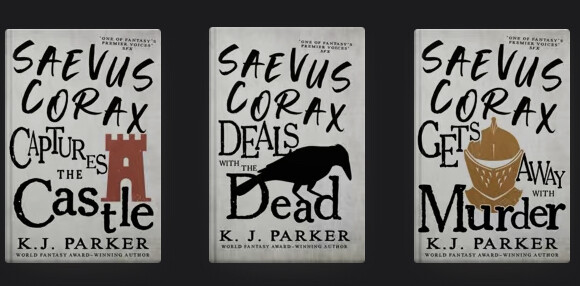
Thanks to some unplanned enforced leisure time  I had a bit more reading time than usual and have binged the latest KJ Parker aka Tom Holt trilogy. They are shown in the wrong order because Books is a shit app; Deals With the Dead is first, Captures the Castle is second. On the one hand, the books are exactly what you’d expect if you’ve read the 10 Ways … trilogy, semi-anti-hero with flexible morality somehow competently doing the right thing in a cynical world. On the other hand, I think these books are better, the light sketches of geopolitics sitting next to the grimly funny details of harvesting a battlefield, horrible violence, genuinely comic parts and an ultimate ending that is heartbreaking. The contemporary allusions and the continuous sense that human misery is the only outcome of war and politics make this trilogy a bit different.
I had a bit more reading time than usual and have binged the latest KJ Parker aka Tom Holt trilogy. They are shown in the wrong order because Books is a shit app; Deals With the Dead is first, Captures the Castle is second. On the one hand, the books are exactly what you’d expect if you’ve read the 10 Ways … trilogy, semi-anti-hero with flexible morality somehow competently doing the right thing in a cynical world. On the other hand, I think these books are better, the light sketches of geopolitics sitting next to the grimly funny details of harvesting a battlefield, horrible violence, genuinely comic parts and an ultimate ending that is heartbreaking. The contemporary allusions and the continuous sense that human misery is the only outcome of war and politics make this trilogy a bit different.
The publishers do that thing of putting a sample chapter of another book at the end of the eBook. They really shouldn’t - each one has been utter plodding garbage that makes you wonder how they made it off the slush pile.
Also: good taste.
Good prose, but a little over-written. There’s some definite padding here, to bring a short story up to novella length, but it is still, miraculously, worthwhile. A lot of good ideas, which I always appreciate.
One chunky spoiler in what follows as I want to talk about it, but it’s pretty heavily given away in at least one blurb so I’m not blurring it out
Mm. I think the kindest thing to say about this is that it’s a debut novel and it shows in its unevenness. Set in a fantasy China at war with a fantasy Japan, it it a rewrites 19th and 20th century history in a world where gods are real and can be summoned, magic happens and there’s also technology in the form of cannons and trebuchets. Poor orphan in a brutal foster family gets an owl summoning her to Hogwarts passes the country-wide exam to be admitted to the highest military academy in the country. Once there, she discovers she is Different, and also an undiscovered shaman. She gets taught magic, goes off to join a unit of magic users as fantasy Japan invades, and ends up committing genocide.
The problem is, none of this really works. The world-building is clunky, the magic-tech balance not clear, and the military school section could be set in any contemporary US university tv series. I had to search the book to make sure my memory of someone saying ‚dude‘ was in fact false. The being-taught-magic-by-eccentric-teacher bits were done far better by Patrick Rothfuss.
Yeah, the genocide. We‘re meant to be shocked! shocked I tell you! after our heroine has been exposed to fantasy Rape of Nanking and fantasy Unit 731 and fantasy Comfort Women - and yes, mining not-very-distant historical evils in service of a fantasy book is fairly questionable - and then decides to fantasy nuke the whole of fantasy Japan in revenge. The only interesting twist here is when she asserts this was destined to be and the unleashed god in question says nuh-uh, this was all specifically your choice. But given that the author’s thumb has been heavily on the scales for the last hundred pages, it’s far too late to try and pull any Ender’s Game moral ambiguity out of the story.
I don’t care enough about any of the characters or the dangling plot threads to read the rest of the trilogy.
As a palate cleanser, I re-read the Goblin Emperor, which is a master-class in elegant world-building without info-dumps, and felt a lot better.
At least Kuang finished her trilogy … ![]()
Fair point. We’re never going to see Doors of Stone, or it’s going to be Duke Nukem Forever in book form if it ever makes it into print.
